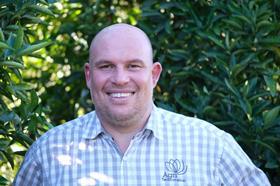
South Africa-based agricultural group Agri Technovation has launched a new product that monitors a fruit tree’s carbohydrate status, allowing for corrective action, if needed, to ensure an optimal harvest.
The technology is branded as Itest Carbohydrates, and is said to be especially effective in addressing alternate bearing by helping to establish a greater equilibrium between crops – which, in turn, leads to increased yields over time.
According to Erik de Vries, Agri Technovation’s joint chief executive, the new tool has already proved successful among citrus growers.
Multiple crops, multiple countries
Itest Carbohydrates was also recently extended to the avocado industry, and will soon be launched for apples as well as macadamias, almonds, pecan nuts, vineyards and mangoes, he said.
“We are looking at almost 20 different crops and have made good progress on about 14 of them,' de Vries epxlained. 'Over the last two years, the technology has been successfully implemented in the South African citrus industry and the analysis programme has already been developed up to cultivar level. The citrus programme is also being refined to become area-specific, which takes into consideration different climates.”
Countries that have already come on board by sending citrus and avocado samples to Agri Technovation’s analytical facility in Wellington, South Africa, include the US, Australia, New Zealand, Argentina, Peru, Morocco, Zambia and Zimbabwe.
Mexico, Chile and Spain have also shown interest and planning for the receipt of their samples has started, the company said.
How it works
The Itest Carbohydrates analysis programme monitors sugars and starch concentrations in leaves and roots at critical phenological stages throughout the season.
This involves the routine analysis of tree roots and leaves, which is compared to a norm for sugar, starch, and the total carbohydrate levels for the different phenological stages of the plant.
Any variance from the norm allows for the timely development of management practices, such as pruning, orchard manipulation and nutrition programmes, which will eventually help producers to ensure optimal plant growth and annual produce.
“I am convinced that this is a revolutionary breakthrough for agriculture,' de Vries outlined. 'In essence, the energy status information gained from the analysis programme allows us to get a picture of what will happen in the plant over the next month or two, which in turn enables us to be proactive in applying corrective management practices if need be.
'Over time, it will ensure a more constant supply of produce to the market, which is not only good for the consumer but has massive risk-mitigating advantages, especially for producers,' he explained. 'This includes better income streams and stronger balance sheets for farmers.”
Surpassing expectations
According to Corné Liebenberg, marketing director at partner firm Laeveld Agrochem, the introduction of the analysis programme to South Africa’s citrus industry has been 'hugely successful' and has 'surpassed all expectations'.
“Almost all citrus farmers want to get on board as it is one of the few, if not the only, methods whereby one can make timely adjustments that can have a significant impact on returns,' said Liebenberg. 'The proprietary methodology used by Itest Carbohydrates is a first in the world and is now sought after by countries like the United States, Spain and Australia.
“This is a game changer for the agricultural industry,' Liebenberg added. 'Up to now, there was no way of really addressing on-and-off seasons.
'Instead of responding reactively to what has happened in the past, Agri Technovation’s IP allows fruit producers to look into the future to how their fruit and nut trees will produce and then respond proactively to ensure a productive harvest in the next season. The end results are greater harvests, better and more profitable farmers, and increased foreign income from exports, which should ensure greater employment for the country.'



